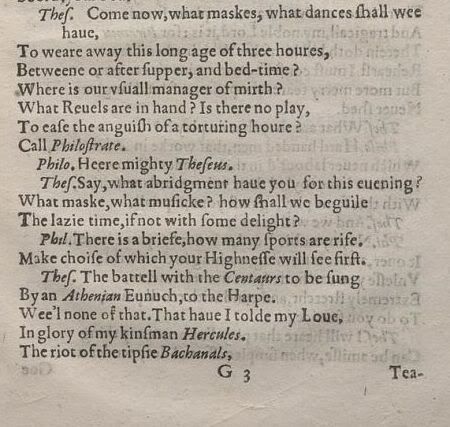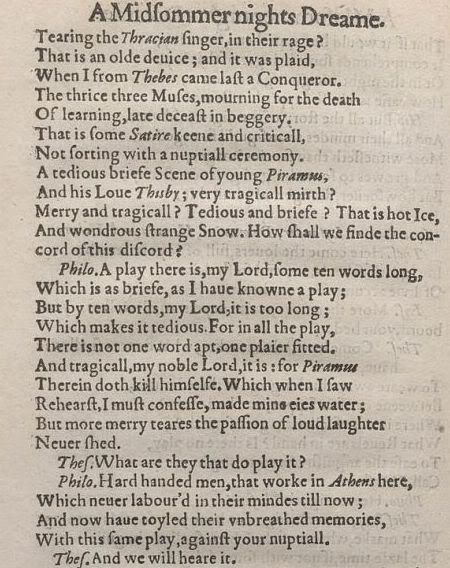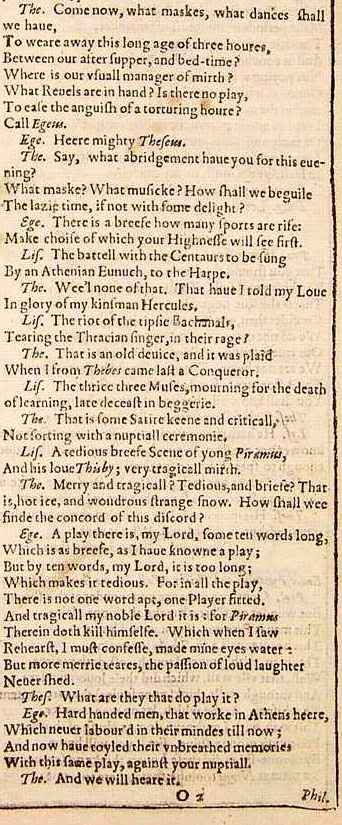Working on the ASC Study Guide for A Midsummer Night’s Dream, I’ve had my first chance in a while to examine differences between Quarto and Folio versions of a text. Intern Kim Lenz prepared the Textual Variants section for the Hamlet study guide, and everything else I’ve worked on since the end of last season has been a text which only exists in the Folio. I knew that, looking at Midsummer, I wanted to find a Quarto/Folio variation, rather than looking at a choice made by modern editors. I found a great opportunity for exploration in 5.1, when Duke Theseus is debating who to select for the post-nuptial entertainment. In the Quarto edition of the text, Theseus reads off the list of potential entertainments and responds to himself. His servant Philostrate responds to the idea of watching the Mechanicals’ version of ‘Pyramus and Thisbe.’ In the Folio version of the text, however, Lysander reads off the list to Theseus, and Egeus attempts to dissuade him.


Folio Version
What interested me about this isn’t just that the speech prefixes get reassigned — what I find particularly intriguing is that almost nothing else changes between the two versions. Throughout the conversation and the itemization of theatrical endeavors, most of the spellings and puncutation remain consistent between the editions. Even the least-orthodox of the spelling variations — “muſicke”, “Wee’l”, “tipſie”, “vſuall” — remain the same between the Quarto and the Folio. At Philostrate’s/Egeus’s speech beginning “A play there is,” inconsistencies begin to appear, but until that point, it looks as though whoever did the typesetting for the Folio copied the Quarto nearly identically — except for the prefixes.
The striking similarities in typesetting, despite the considerable change to the speech prefixes, really makes me wonder what the cause for that change was. Could this be an example of the Folio text reflecting a change to the play-as-produced? Somewhere between 1600 and 1623, did Shakespeare the author, or the King’s Men as a company, decide that the scene worked better as a dialogue between Lysander and Theseus? Did a new doubling mean that whoever played Philostrate in 1.1 could not be available for this section of text? This change seems too large and too deliberate to have been an error, since it involves not only reassigning speech prefixes but also breaking a monologue into a dialogue. There must have been a reason — but we’re not ever likely to find out what that reason was. This textual variant offers a tantalizing opportunity for speculation — just the sort of intellectual and imaginative experiment that makes working with early modern texts so intriguing.


